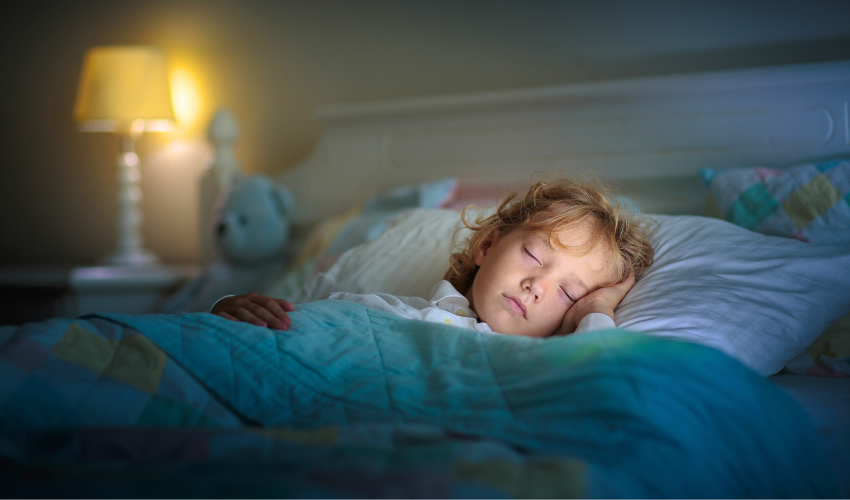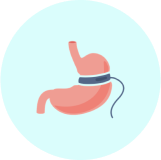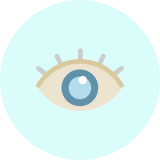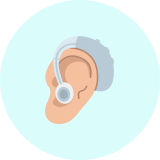Sleep is not just downtime for the brain and body; it's a period of powerful activity.
During sleep, children's brains process and store information, while their bodies rejuvenate and grow. This is especially crucial for kids who are constantly learning new things and engaging in various physical activities.
Without enough sleep, children struggle with mental functions such as concentration, memory and managing their emotions. They might also find it challenging to organise tasks and think creatively.
While a single night of poor sleep can make kids cranky, ongoing sleep problems can lead to mood issues, lower school performance and a weakened immune system.
Lack of sleep doesn't only affect mental processing—it can also have serious physical consequences. Research from Associate Professor Honey Heussler at the University of Queensland highlights that insufficient sleep can lead to poor growth and excessive weight gain in children. Shorter sleep times are also linked to higher blood pressure, potentially increasing the risk of hypertension later in life.
How much sleep do children need?
Sleep needs vary with age. Primary school children should get 9-12 hours of sleep, while high-schoolers need 8-11 hours. Here's a general guideline:
Infants (4-12 months): 12-16 hours (including naps)
Toddlers (1-2 years): 11-14 hours (including naps)
Preschoolers (3-5 years): 10-13 hours (including naps)
Grade-schoolers (6-12 years): 9-11 hours
Teens (13-18 years): 8-10 hours
It’s important to note that these are guidelines, and some children may need more sleep than others. Observing how your child functions during the day can help determine if they're getting enough rest.
Creating a sleep-friendly routine
Establishing a consistent bedtime routine is key to ensuring children get the sleep they need. Here are some tips:
Before bed: Set a bedtime that gives your kids enough sleep before they need to wake up. Spend the last 30-60 minutes before bed winding down with calming activities like bathing, brushing teeth and reading stories. Avoid stimulating activities and keep electronic devices out of the picture as they can interfere with melatonin production and make it harder to fall asleep.
During sleep: Make sure their sleep environment is comfortable, dark, and quiet. Use blackout curtains if needed and play some gentle music. Keep the bedroom just for sleeping, not for playing or studying, to help them associate it with rest. Aim for a room temperature around 17-19 degrees Celsius and ensure good ventilation to keep the air fresh.
In the morning: Get your kids to wake up at the same time every day, even on weekends and holidays, to keep their body clocks consistent. Include some daily exercise in your routine, especially in the morning sunlight, to help improve their sleep at night. A balanced diet with all the essential nutrients also goes a long way in supporting good sleep.
Sleep tips for teenagers
Teenagers have different sleep needs and face unique challenges. While the tips for younger children apply, they can be harder to implement due to teenagers' autonomy. Discuss the importance of sleep with your teen and work together to adjust their schedule to ensure sufficient sleep. Avoid stimulants like coffee, tea and energy drinks, as these can disrupt sleep.
When to seek medical advice
If sleep routines don't improve your child's sleep or if they seem consistently tired, consult a doctor. Sometimes, underlying issues may need to be addressed. Establishing a healthy sleep pattern is a gradual process, but it's essential for children's overall wellbeing and performance.
By prioritising sleep, we can help our children thrive, ensuring they have the energy and focus to make the most of their day.
This blog article was supported by AI generation and, while intended to be helpful, should not be relied upon as individual health advice. Always consult a healthcare professional before making health decisions. The accuracy, completeness, or recency of the information cannot be guaranteed and we cannot be held responsible for any loss incurred from acting on this information. Content developed in partnership with Health and Wellbeing Queensland.
Information source: https://hw.qld.gov.au/blog/the-power-of-zzzs-why-sleep-is-a-valuable-part-of-childrens-wellbeing/






































